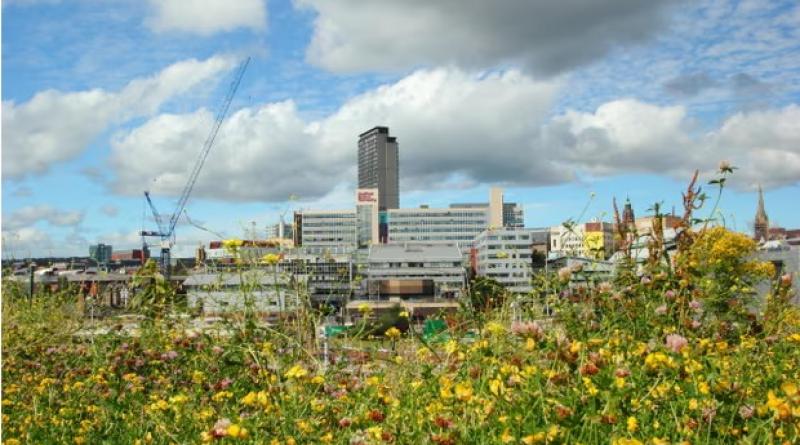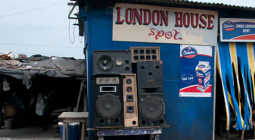Give Britons the right to plant to green up public spaces, Gove adviser says

Thinktank Create Streets calls for people to be allowed to grow plants and trees in barren urban areas
A right to plant and grow trees and other greenery in public spaces should be given to people across Britain, an adviser to Michael Gove has said.
Nicholas Boys Smith, who heads the Office for Place in Gove’s Department for Levelling Up, Housing and Communities (DLUHC), also chairs the thinktank Create Streets, which has released a report calling for more greening of cities.
The report says the government’s levelling up strategy should include specific provisions for urban greenery, and suggests measures that could be adopted including a right to plant.
It proposes: “Create a new right to grow and right to plant giving individuals and local communities the legal right to plant in existing public green spaces in their neighbourhoods, and much easier to plant in streets.”
Currently people without gardens of their own are often blocked from planting trees or flowers in barren local spaces. Many studies have shown that urban greenery levels reflect socioeconomic inequality, with people on low incomes less likely to live within a five-minute walk of green space or to live on green streets.
The thinktank is also calling on the prime minister to declare a national mission to regreen all Britain’s towns and cities, including a national competition to celebrate the best examples, support for commemorative tree schemes, and spreading resources and guidance on greening.
Create Streets conducted a cost-benefit analysis into building small new parks in an urban area, finding a positive impact valued at £6,495 per person living within 500 metres of the green space. This includes a combination of lower depression (£750), higher cognitive development (£150), reduced mortality (£2,999), reduced crime and a higher house price (£3,375).
The report authors say there is an “unconscious bias” against greenery and plants in local planning, despite the benefits to areas and people. It says the government should encourage local authorities to adopt a “grow don’t mow” policy to create biodiverse verges instead of clearcut lawns.
One approach praised by Create Streets is called “the 3-30-300 rule”: that everyone should have sight of three trees, every neighbourhood should have 30% canopy cover, and everyone should live within 300 metres of a park or green space.
Prof Carlos Moreno, who created the concept of the “15-minute city”, said: “Greening our cities is urgent; it is our duty, it is our obligation. This splendid report champions greening our cities and it offers solutions to the barriers that stop them from achieving their potential as humane and beautiful places where we can live happy and healthy lives.”
The former Tory minister Rory Stewart said: “Little can be more important to the web and weave of our neighbourhoods than replanting millions of street trees up and down the land. This important report from Create Streets shows why we aren’t planting street trees and how to fix it. I hope that every politician from north and south, left and right reads it and acts on it. Britain would be the better for it.”
Boys Smith said: “For the first time this report examines the hidden wiring of incentives, regulations and outdated policy which prevents tree planting and lifts the lid on why strategic statements of intent are not translating into sufficient ‘greening up’ on the ground. We make detailed and actionable recommendations for how national and local government could slice through this Gordian knot so that trees not tarmac, and living in verdant and tree-lined streets and squares could once again become the natural condition for us all.”
DLUHC has been contacted for comment.
Photograph: Deborah Vernon/Alamy - Sheffield city centre seen from an urban wildflower meadow. The report says the government’s levelling up strategy should include provisions for urban greenery.





